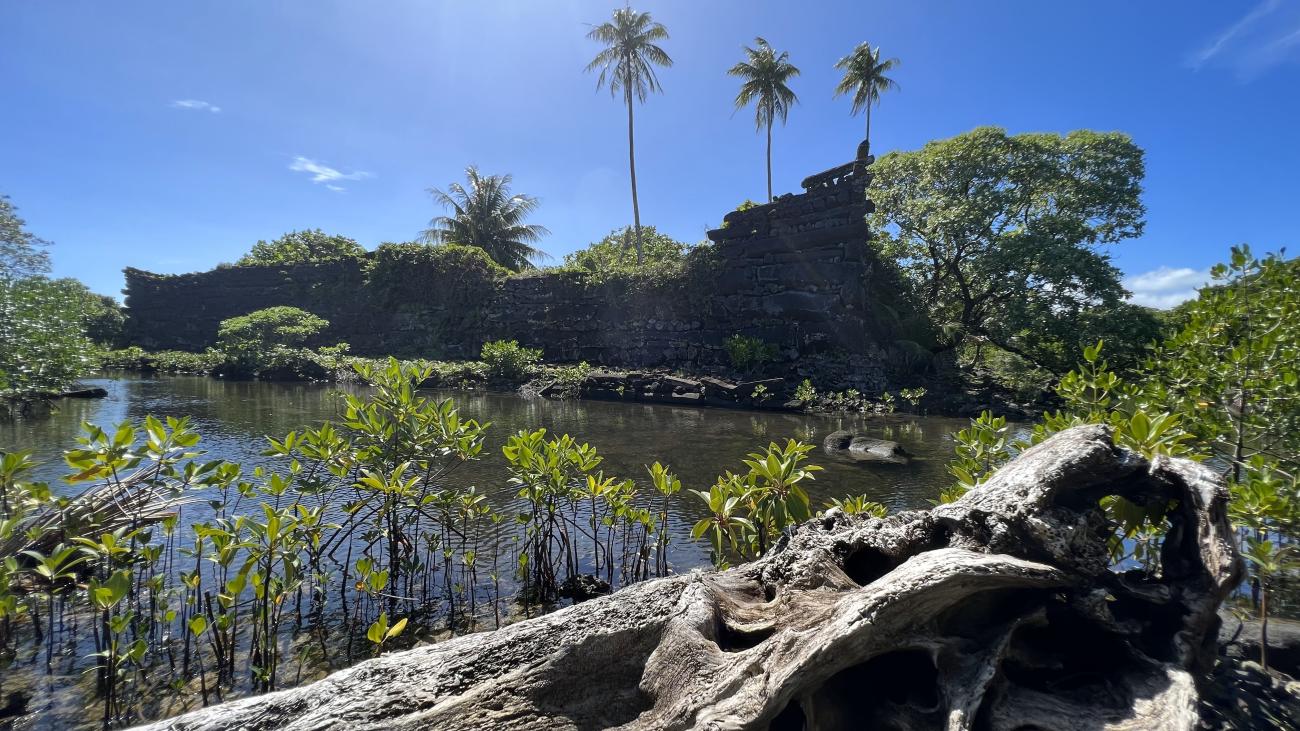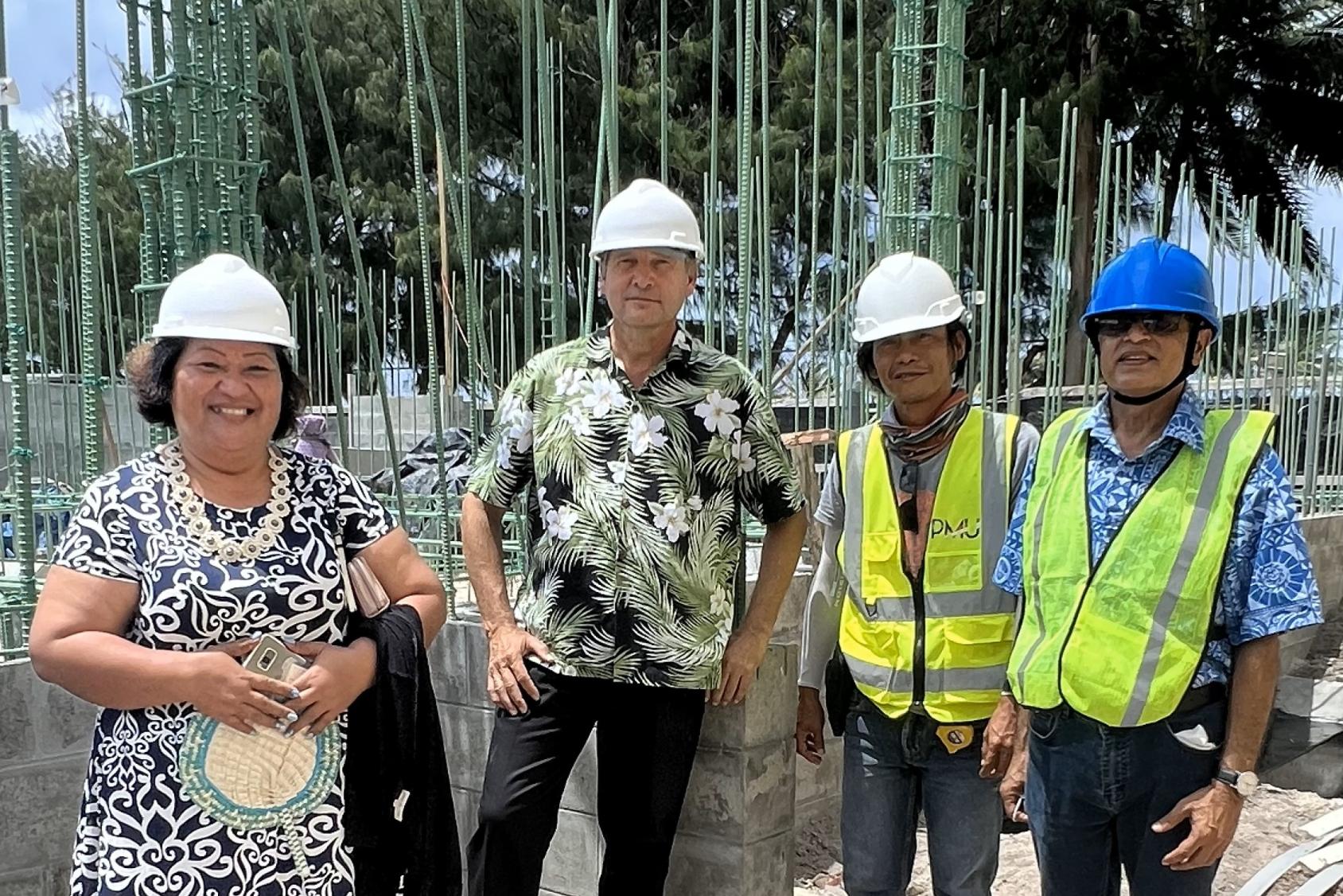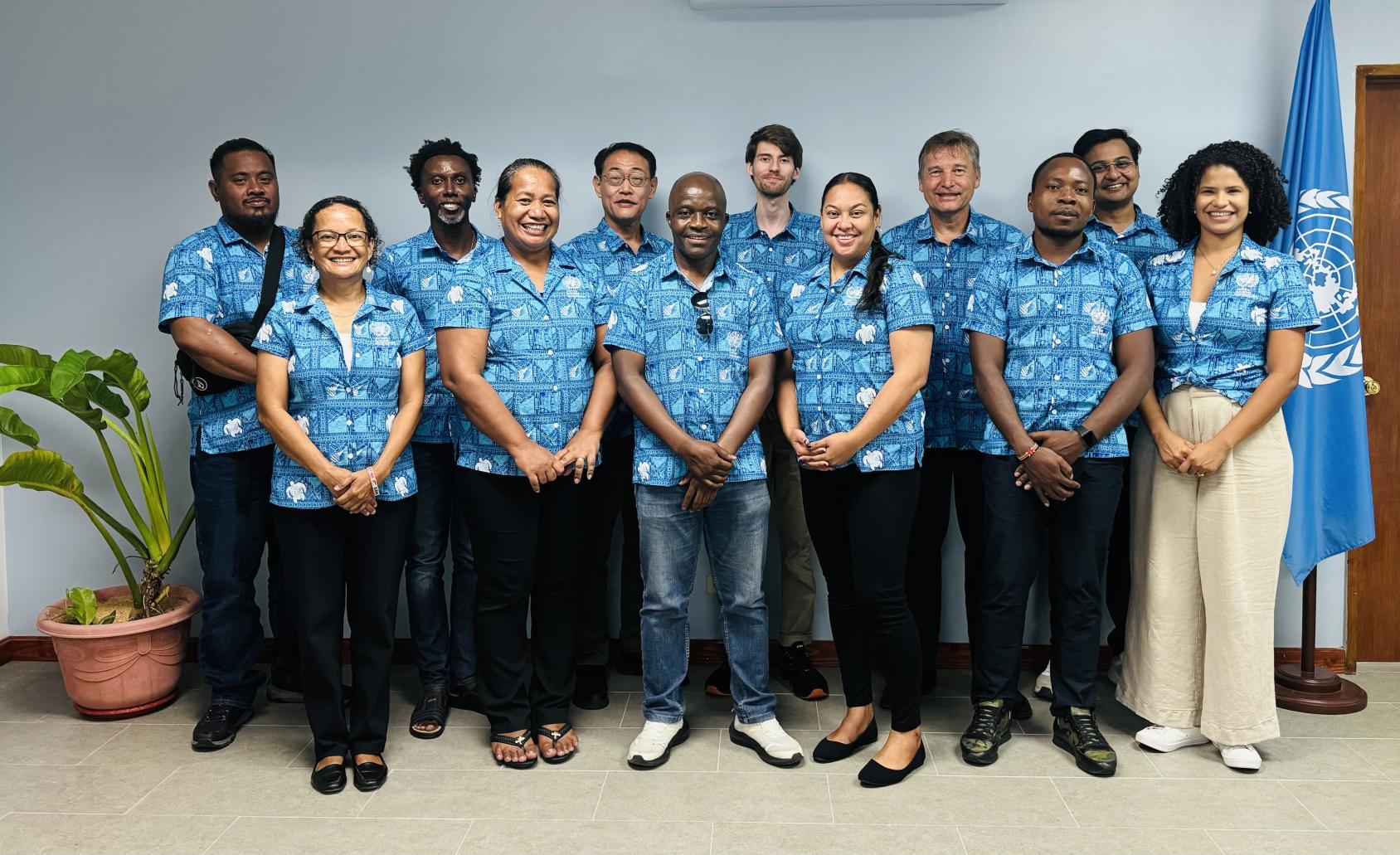Navigating the Currents of Change in the North Pacific

With my time as the first UN Resident Coordinator for the North Pacific coming to a close, I've been reflecting on the unique challenges and opportunities shaping this extraordinary region, a region that is impacted by rising sea levels, worsening weather events, depopulation, and geopolitics. In October 2021, the UN Secretary-General appointed me as the first Resident Coordinator in Micronesia, the result of a longstanding request by Micronesian leaders for the UN to step up its engagement in the North Pacific. I was tasked with establishing a UN Multi-Country Office covering the five Micronesian nations of Palau, the Federated States of Micronesia (FSM), the Marshall Islands, Nauru, and Kiribati, and to bring more of the UN’s capacity and expertise from the South to the North Pacific. Despite challenges, I am pleased to note that we are fully operational, with a central UN Micronesia hub in Pohnpei, FSM, and staff deployed across all five countries.
While we increased our presence and engagement in each of those countries, in FSM alone, we expanded our UN footprint from five UN entities upon my arrival in Pohnpei in November 2021 to sixteen UN entities today. This strengthened presence has enabled the UN system to engage more consistently and effectively with the region's unique needs and priorities. We also secured land through the generosity of the people and leaders of Pohnpei that may see a One UN Micronesia House hosting at least 120 UN personnel from 18 UN entities soon.

Not surprisingly, being on the ground makes a huge difference in appreciating and understanding the developmental and humanitarian context within each of the five Micronesian countries and four states of Micronesia (Yap, Chuuk, Pohnpei, and Kosrae). To convey this effectively within our UN team, I travelled frequently and engaged with government counterparts, development partners, civil society, faith-based leaders, chambers of commerce and communities. Together, we aspired to affect transformational change that leaves no one behind and helps build a better future for all, one in which our planet with its finite natural resources and unique biodiversity is a key stakeholder.
Turning challenges into opportunities
The Micronesian region, spanning thousands of islands across an immense geographical area, faces pressing challenges pertaining to climate change, biodiversity loss, and pollution. Rising sea levels and increasingly severe weather events threaten the very existence of these island nations.
For example, during my travels to the Marshall Islands and Kiribati, I witnessed the hardship of people living on narrow low-lying islands. These communities are struggling with coastal erosion, displacement, fresh water supply and sanitation, and saltwater intrusion that poisons their staple crops of breadfruit and taro. Yet, they remain deeply connected to their ancestral lands. Adding to these hardships is the constant drain of depopulation, which is particularly acute in the three Micronesian countries (FSM, Palau and Marshall Islands) with Compacts of Free Association with the United States. This exodus has profound consequences for Micronesian society, impacting everything from the availability of skilled labor to vital cultural traditions fading as younger generations seek opportunities elsewhere.
Despite these challenges, the Micronesian region holds immense potential, and the UN system is committed to working alongside governments and people to turn adversity into opportunity. It realizes the importance of collaboration in addressing the diverse and interconnected challenges facing the region. In the Pacific, we have taken special note of key accelerators for the Sustainable Development Goals (SDGs), that are particularly relevant for each island nation. These include food systems to tackle non-communicable diseases (NCDs); energy access and affordability to reduce dependency on diesel; digital connectivity to overcome geographical distances; education to reach children in the most remote areas; jobs and social protection to incentivize young people to stay; and the environment, with a focus on tackling coastal erosion, preserving biodiversity, and combating pollution. For example, our digital transformation programme implemented through a joint effort by seven UN organizations includes a Smart Islands pilot for each of the five Micronesian countries that connects remote communities to the internet and provides them with digital skills to navigate and take advantage of the global marketplace. When visiting the new digital hub in Jabor Island in the Marshall Islands a few weeks ago, I was encouraged to hear the ideas of community members about soon being able to access educational material, sell handicrafts and transfer funds online.
Looking ahead: Hopes for Micronesia
As I prepare to depart from this remarkable region, I carry with me a deep appreciation for the warmth and resilience of the Micronesian people. My experiences here, both professional and personal, have been profoundly enriching.
Looking to the future, I am hopeful that Micronesia's young people will be inspired to stay and build their lives in their home countries. This will require continued investment in education and healthcare, as well as the creation of sustainable economic opportunities that provide well-paying jobs that allow them to thrive. Preserving Micronesia's rich cultural and natural heritage is also essential. This unique biodiversity is a treasure that must be protected for generations to come. And as climate change intensifies, I hope that Micronesia will be at the forefront of developing and applying innovative technologies that empower communities to adapt and build resilience without sacrificing their homes or their heritage.
The UN remains steadfast in its commitment to supporting the people and leaders of Micronesia in building a future that leaves no one behind. I am confident that, together, we can navigate the currents of change and create a more sustainable, resilient, and prosperous future for Micronesians.

This blog was written by the Resident Coordinator in Micronesia Jaap van Hierden. To learn more about the work of the UN in Micronesia, please visit micronesia.un.org













